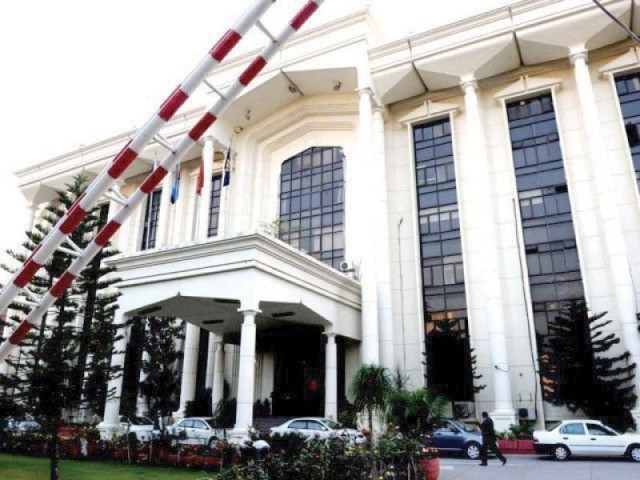Income of foreign lenders taxed
UK, Germany, US and Japan raised taxation issue with Pakistani authorities

The Federal Board of Revenue (FBR) has taxed the income being earned by foreign lenders by giving loans to Pakistan in addition to imposing taxes on their grants – a move that the Ministry of Economic Affairs said may cause serious repercussions.
The disclosure was made by Ministry of Economic Affairs Additional Secretary Humair Karim in a meeting of the Senate Standing Committee on Finance that had been called to discuss the new Finance Bill clause by clause. Senator Saleem Mandviwalla chaired the meeting.
The United Kingdom, Germany, the United States, Denmark and Japan have raised the taxation issue with the Pakistani authorities, according to the economic affairs ministry.
Recipients of interest on foreign loans have been taxed at very high rates and “the FBR has not accepted our proposals to exempt the loans and grants from taxes,” revealed the additional secretary to the surprise of the committee.
Committee members urged the ministry to resolve the issue at the government level instead of bringing it to parliament. But the additional secretary said that the FBR was not listening to its proposals.
“In a debt-laden economy like Pakistan, this will cause serious repercussions and this must be addressed by the Finance and FBR,” said a paper that the additional secretary submitted with the standing committee.
Pakistan owes around $128 billion to the international creditors and it receives nearly half a billion dollars in grants every year. However, the multilateral creditors are exempt from taxes under various agreements.
FBR’s Member Inland Revenue Policy Afaq Qureshi told the committee that an amendment had been proposed in the new Finance Bill to give tax exemption on a case-to-case basis.
An FBR official said that the authorities had not directly taxed the interest income of a foreign country but it had taxed only that portion of the loan or grant that was in the hands of local contractors.
The economic affairs ministry stated that according to an agreement between Pakistan and Germany concerning technical cooperation of November 1972 it had been agreed that all grant agreements by Germany would be exempt from all general sales taxes.
The UK has requested that the Official Development Assistance (ODA) is grant financing and shall be exempted from all taxes and duties in all forms including any returns generated thereof, and this includes all channels, financial assistance, through suppliers, for profit companies, non-profit companies like Karandaaz, according to the ministry.
Similarly, the USAID – the development arm of the US government – has also put forth a demand that any taxes deducted on grant assistance, would be deducted from the grant money.
“The USAID delegation cautioned that if its invoices are not accepted, USAID will de-obligate $1.7 million (100% of tax deducted by the federal and provincial revenue authorities) on account of tax recovery and it will go back to the US treasury,” revealed the ministry’s documents.
They also mentioned that as per Pakistan Enhanced Partnership Agreement (PEPA) and negotiations between the US and Pakistan governments, taxes and duties must not be applied to any USAID projects, and warned that $3.4 million is anticipated to be deducted in the upcoming year that will be 200% of the taxes deducted.
The US has also urged the economic affairs ministry to process tax exemptions for the USAID’s implementing partners.
“KfW in a meeting with FBR’s Inland Revenue Policy was shocked at the FBR’s stance that any markup to be paid by the government of Pakistan on repayments shall be taxed as an income of the recipient country, organisation.”
The ministry stated that due to this stance, the income of Denmark’s Danske Bank, Japan’s JIBC, Germany’s KfW and France’s AFD will be taxed in Pakistan.
“This kind of treatment can simply result in drying up of any foreign economic assistance from these countries.”
The ministry stated that Pakistan takes concessional loans at either zero or minimum interest starting from 0.25% to 0.75% and these are repaid over a period of 25-45 years.
In case of multilateral lenders such as the ADB, World Bank and Islamic Development Bank, the interest rate varies from 1.25% to around 6%.
The ministry is also seeking tax waiver for the foreign consultants and companies offering any services under the grant-in-aid project or interest-free loan, procurements and supplies of any goods and services for the projects.
The ministry has proposed that the FBR may tax interest income of the foreign lenders, if the rate exceeds 7% and where the repayment duration is less than 10 years.
The standing committee approved a budget proposal to abolish the condition to produce the Computerised National Identity Card (CNIC) on purchase of goods worth Rs100,000 or more. The condition had been levied a few years ago but the FBR could not document the traders.
Published in The Express Tribune, June 15th, 2022.
Like Business on Facebook, follow @TribuneBiz on Twitter to stay informed and join in the conversation.


















COMMENTS
Comments are moderated and generally will be posted if they are on-topic and not abusive.
For more information, please see our Comments FAQ